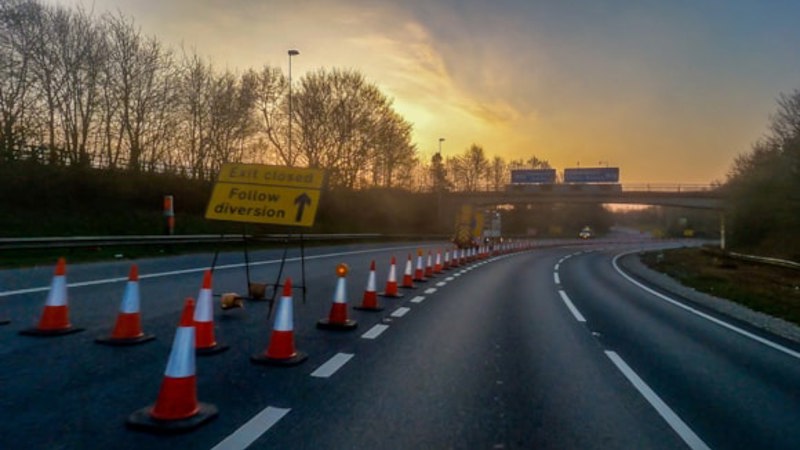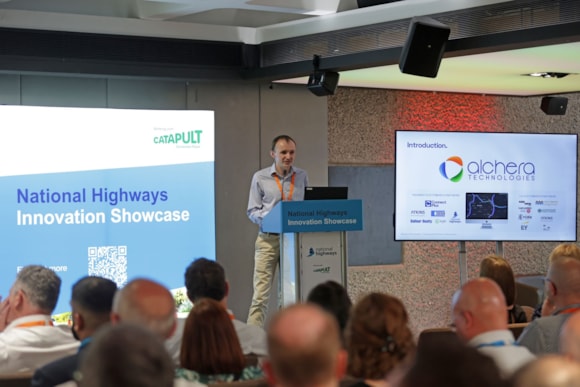New technology trial reduces delays for drivers and cuts cost of roadworks
Published
23 Sept 2024
New technology developed to help ease the pain of roadworks for road users and businesses saw 2,100 fewer journeys being delayed on the M6 in a two-month trial.

Share this article
New technology developed to help ease the pain of roadworks for road users and businesses saw 2,100 fewer journeys being delayed on the M6 in a two-month trial.
The innovation, being trialled as part of one of our regular competitions, also saved an estimated £45,000 by consolidating work and enabling the cancellation of one in 28 shifts.
The time-saving technology, developed by Alchera Technologies, was one of three finalists in the competition launched to find new ways to improve people’s experiences of roadworks.
A shortlist of 10 finalists was whittled down to three which were then given the opportunity to trial their products in real-life situations on England’s motorways and A-roads with each receiving £60,000 to take their ideas forward.
Traffic flow levels are an important aspect of planning roadworks as numbers must be at an appropriate rate to enable road crews to work safely, whilst also considering the impact on road users including freight services.
The trial of the technology developed by Cambridge-based Alchera used artificial intelligence to generate the most favourable works bookings, by using accurate traffic flow predictions and balancing the trade-off between creating financial efficiencies and giving road users the most positive experience. The solution optimised traffic management, reducing road closures and saving taxpayers money.

Working with Costain, this system was successfully put to the test on the M6 between junctions 21a and 23 in the North West. As a result, Alchera estimates that use of the technology across all of our roads could reduce the number of delayed journeys by 900,000 and save the public purse £18.2m.
The other two winners trialling their ideas are:
- Robok, also based in Cambridge, which uses AI-powered computer vision technology to analyse CCTV footage offering a better understanding of both road user and roadworker behaviour and helping to improve people’s experiences of roadworks. This trial was supported by Balfour Beatty on the M25 J10/A3 Interchange. Robok processed over 10,000 hours of video footage and successfully enhanced hazard detection capabilities.
- WordNerds, of Gateshead, brought together over a quarter of a million pieces of textual customer feedback on roadworks and pulled out useful, actionable insights using AI models. Working in partnership with Costain, Kier and Balfour Beatty, the trial led to 16 major actions, from auditing signage issues to exploring EV charging options to improving communications, all based on road user comments.
Our Executive Director for Major Projects Nicola Bell said:
“When we launched this competition, our goal was to find new ideas to help reduce the impact of roadworks on road users and people living near works.
“So it’s fantastic news that we are already starting to see how effective these new innovations can be both in reducing delays and costs.
“We know roadworks are frustrating for people but they are an essential part of keeping our roads safe and moving so anything we can do to ease the impact of these important works is to be welcomed.”
The competition, run in collaboration with Connected Places Catapult, has been funded through our Designated Funds. This is ring-fenced funding dedicated to investing in and supporting initiatives that deliver lasting benefits for road users, the environment and communities across England.
In June, an innovation showcase was held at The Barbican in London in June which highlighted seven trials of technologies and products that have been carried out in the past 18 months thanks to competitions organised through the Innovation and Modernisation Designated Fund.
